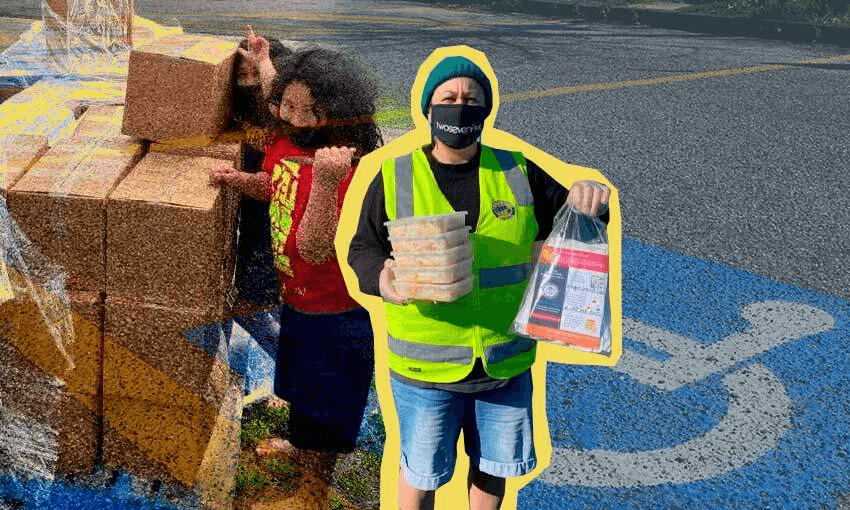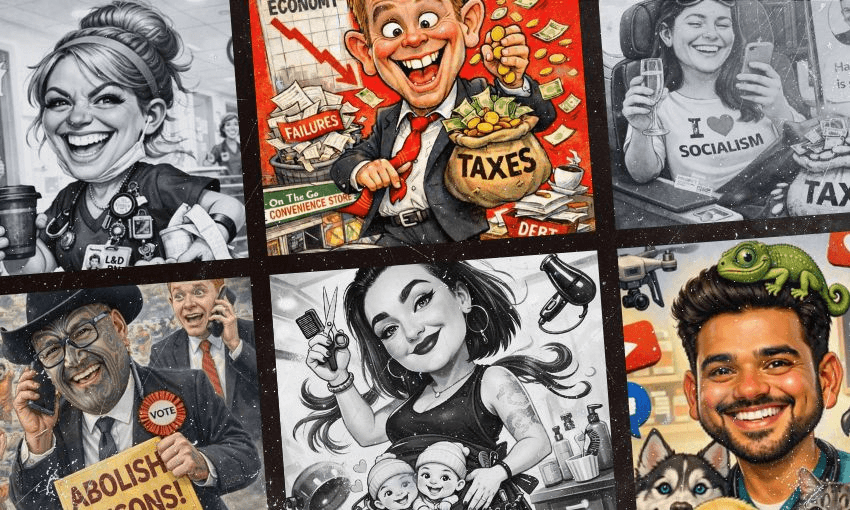The Covid-19 outbreak poses a unique set of challenges for those in the disability community, and there are concerns social services aren’t doing enough to support them.
“Right now, the community is suffering at levels that I’ve never seen before,” says Tania Kingi, who’s worked in the disability sector for almost 40 years. Kingi works for Te Roopu Waiora, a kaupapa Māori organisation in south Auckland that supports whānau impacted by disabilities. She says this lockdown has been the toughest yet for the people she helps – and is calling for all social services to step up.
“There are issues that have been around for a long time but have just been amplified by Covid,” she says. “It’s not the same as the first lockdown, as people aren’t as enthusiastic to work together and there’s far more [organisations] holding cards to their chests.”
Kingi says she’s been coming across many whānau with disabilities who are confused about why we’re in lockdown, due to lack of access to the internet or support people to explain what’s going on. “Most of the houses we are delivering food parcels to have their curtains closed and are peeking through, so we’re seeing a level of isolation and fear that we’ve not witnessed before,” she says. “We have this cloak of fear among our communities who don’t quite understand what’s going on because the information out there isn’t accessible to them.”
Human rights lawyer and disability advocate Dr Huhana Hickey, who is a wheelchair user, says food security is “a major fear for a lot of disabled”, due to rising costs and the demand on supermarket delivery services and food banks.
“Basically if you’ve got working people struggling to get food, imagine the struggle of those who are disabled, of whom 53% are on benefits. You can imagine what it’s like for them, because they can’t just go out and get it because of the risks.”
Māngere Connect neighbourhood support area coordinator Toni Helleur agrees. She has run an essential food and goods delivery service through every lockdown in the past 18 months, and says witnessing how much the disability community is struggling has been a “real eye-opener”. “It really hit me seeing the magnitude of what it means to be isolated – until you see it first hand, you just can’t get it.”
Helleur has been helping families with multiple disabilities in their home, as well as a number of individuals living alone. She says the hardest situation was helping a wheelchair user who had suffered a stroke – he couldn’t communicate or lift the food parcel that was delivered, leaving Helleur at a loss as to how to help him effectively. “That hit me the hardest. You just forget the little simple things in life that we take for granted.”
Disability Connect chair Colleen Brown, who’s also a board member on the Counties Manukau DHB, is part of a community collective that has been delivering almost 100 food parcels a week. She estimates there are at least 200 families and individuals in south Auckland who have inadequate support right now.
“It’s almost a civil emergency,” she says. “What we know is disabled people and their families are going hungry. People are in situations that are not safe. But if you’re not seen and you’re not heard, then who is worried about your welfare?”
Brown says the answer is for social services to coordinate their services better and collaborate with each other. “There’s a number of organisations out there getting a lot of money, yet they are referring people on to groups such as ourselves. We know they are getting a lot more money than us, but what are they doing with it?” Kingi shares her frustrations, saying if all the organisations funded to support people “were doing their job properly, we wouldn’t have this situation”.
“They’re not competent. There’s a particular expertise to engage with whānau with disabilities, but a lot of organisations see this as the too-hard basket.”
Around 42% of those receiving disability support in the Counties Manukau DHB area are fully vaccinated, which is in line with the general population’s rate. But given the disabled community had early access to the vaccine and are considered a vulnerable population, disability advocates are disappointed by the government’s rollout for this sector. “The government over-promised and under-delivered on vaccinating disabled communities. I think they underestimated just how challenging it is,” Brown says.
Hickey says accessing vaccination centres has “been problematic” and there hasn’t been enough information targeted at her community.
“There is a bit of vaccine hesitation, and the anti-vax movement is affecting this. I know the information is there, it’s in sign language and easy-read formats, but I have not seen it out in the community. It needs to be on TV, radio and social media – and we haven’t seen anything.”
Counties Manukau Health chief executive Margie Apa says a more targeted approach is being planned, however. “We do have mobile teams who are going to go into people’s homes, because we’re at a point where we have got the mass populations through, but we’ve got some capacity to really start targeting people who can’t get out of their houses.”
A spokesperson for the Northern Region Health Coordination Centre, via a written statement, said south Auckland is being prioritised for in-home vaccination visits and “accessibility audits have been completed at all 13 of our large community vaccination centres.
“Access to the vaccine for disabled people is a top priority. We are constantly striving to improve access by rolling out new initiatives to meet different groups’ needs. “
Kingi says this is a good idea, but it has to be accompanied by staff who can communicate effectively, given high levels of fear and distrust within the disability community. “People are taking tidbits of news coverage and creating their own conspiracies,” she says. “[Going into homes] is needed, but what we’re concerned about is whether people are well informed about the decisions they are being asked to make.
“I just hope it works.”



